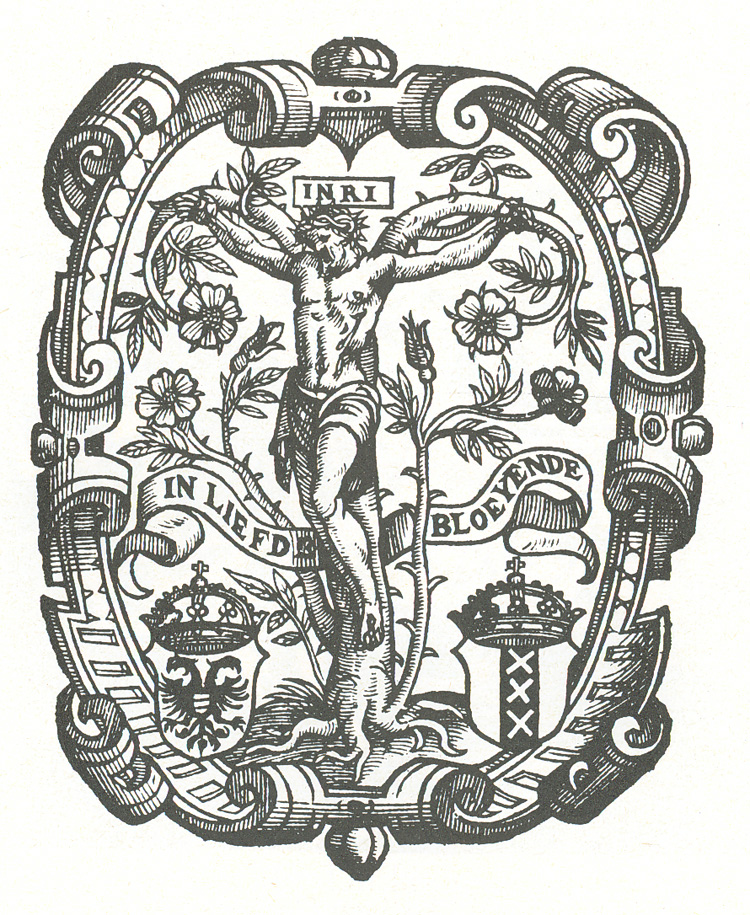Spinoza in Amsterdam
 Spinoza lives his first 30 years in Amsterdam. Except of the rich influence of the jewish community, there was the cultural influence of the Rhetoric Chambers. The most influencial on cultural ànd scientific field was 'The Egelantine' (see for the mark left). They were carriers of the spirit of wanting to think for oneselves now the Bible could be read in the own language and of the Revolt against oppression of free thinking (the 80-years war againt the Spanish and Catholic church hierarchy).
Spinoza lives his first 30 years in Amsterdam. Except of the rich influence of the jewish community, there was the cultural influence of the Rhetoric Chambers. The most influencial on cultural ànd scientific field was 'The Egelantine' (see for the mark left). They were carriers of the spirit of wanting to think for oneselves now the Bible could be read in the own language and of the Revolt against oppression of free thinking (the 80-years war againt the Spanish and Catholic church hierarchy).
The 16th century D'Egelantine of Spiegel and Coornhert changed in the 17th century by poet and mayor-son P.C. Hooft in a direction of classical political theatre. Also there comes the influence of upcoming science, often in the seeking form of pansoft and alchemy.
Looking for the highest good/ On the improvement of the mind
A spiritual kinship with Coornhert and Spiegel can be deduced from Spinoza's youth work 'Treatise on the improvement of the mind'. Coornhert's biographer Becker calls Coornhert 'the apostle of perfectibility'. Spinoza presents in this work what he intends to do in his life.
'It is therefore important to think about what is the highest good', what brings the most resistant peace of mind with the value of the love of God. And to moderate other passions. The highest good which is to work with others to reach 'perfection'. This is the consciousness of the union of the mind with all nature.
'Therefore it is important to think about the 'highest good', what gives the most enduring piece of mind with the feeling of the 'love of God' and to moderate other passions. 'The highest good', that is to reach 'perfection' together with others. That is the consciousness of the unification of the mind with total Nature.
'Any way it is my purpose now to reach such a nature and to be committed that many reach her with me.
- to my felicity belongs toot that I pay effort to let many understand what I understand so that their understanding and desires are in agreement. And to make that possible it is nessecary to understand of nature as much as is required to attain a better nature. Next is necessary to form such a society as is required to able as many people as possible to give form to such a society as is necessary to reach that goal without effort' - Preface Treatise on the improviement of the mind, 14
Spinoza's goal is the freeing of imaginations not in the interests of the people. That do not lead to the top of possibilities in particular times and places. That in his terminology are 'inadequate'. 'Slavery'. Besides the improvements of these 'imaginations', is understanding the role of ones own emotions to understand and reduce the inner desire for false imaginings. To look after what gives happy emotions and avoid the sad ones, is basically consistent with our nature and consequently not bad. With reason one can control unnecessary fears.